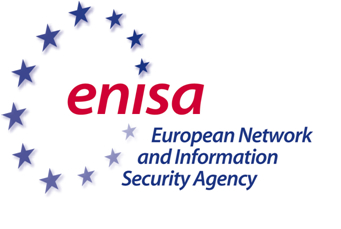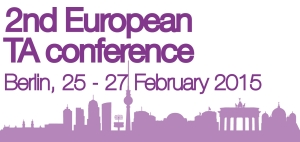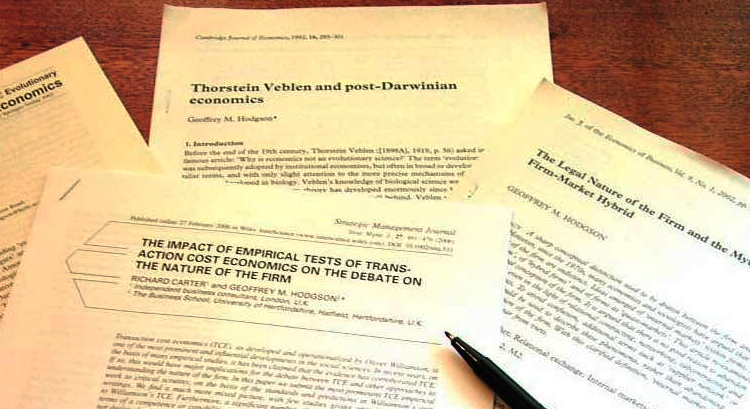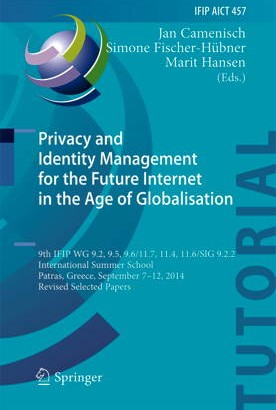Im Projekt PRISMS (Privacy and Security Measures) hat ein Konsortium von acht Forschungseinrichtungen unter Leitung des Fraunhofer-Instituts für System- und Innovationsforschung ISI die Einstellungen europäischer Bürger zu Sicherheit und Privatheit erforscht. Um diese zu analysieren, wurden zwischen Februar und Juni 2014 über 27.000 EU-Bürger aus 27 Ländern befragt. Das zentrale Ergebnis der PRISMS-Untersuchung – nicht zu verwechseln mit dem Überwachungsprogramm PRISM der US-amerikanischen National Security Agency (NSA) – zeigt, dass die in der EU lebenden Bürger sowohl auf Sicherheit als auch auf die Achtung ihrer Privatsphäre großen Wert legen. Überwachung wird der repräsentativen Befragung zufolge nicht grundsätzlich abgelehnt, sondern die jeweilige Akzeptanz oder Missbilligung hängt stark von der Technologie sowie dem Kontext der Überwachung ab.
Die Überwachungspraktiken nationaler Geheimdienste wie der NSA, welche die Enthüllungsplattform Wikileaks jüngst mit der Veröffentlichung geheimer Überwachungsprotokolle erneut belegt hat, werden häufig mit der Sorge von Regierungen vor terroristischen Anschlägen begründet. Wie jedoch die Studie PRISMS zeigt, die unter Leitung des Fraunhofer ISI und unter Mitwirkung von Forschungspartnern wie TNO, der Universität Zuyd, der freien Universität Brüssel, dem Eötvös Károly Policy Institut sowie Trilateral Research, Ipsos Mori und der Universität Edinburgh durchgeführt wurde, teilen die Menschen in Europa die Sorge vor Terroranschlägen nicht unbedingt mit ihren Regierenden: So gaben die über 27.000 befragten Europäer an, sich besonders vor Jugendarbeitslosigkeit (80%), Dogenmissbrauch (74%) oder einem eingeschränkten Zugang zu Gesundheitsleistungen (69%) zu fürchten. Vor Terroranschlägen im eigenen Land hat indes nur ein kleiner Teil der Bürger Angst (38%). Dies gilt noch weniger für konkrete Terrorereignisse wie etwa Opfer einer Bombenattacke zu werden, nur 11 Prozent sehen diese Gefahr.
Die Diskrepanz zwischen Gesellschaft und Regierenden zeigt sich erneut bei der Frage nach dem Vertrauen der Bürger in bestimmte Institutionen – hier fördert die PRISMS-Studie die Erkenntnis zutage, dass etwas über die Hälfte der 27.195 Befragten ihrer Regierung wenig bis gar nicht vertrauen, was etwas abgeschwächter auch für die nationalen Medien gilt. Dieses Misstrauen hängt sicherlich auch mit der Rolle zusammen, die Regierungen im Zusammenhang mit großflächig durchgeführter Überwachung in Europa bzw. der Akzeptanz von Überwachungspraktiken durch Geheimdienste spielten. In diesem Kontext gaben 60 Prozent aller interviewten Bürger und drei Viertel aller befragten Deutschen an, dass ausländische Regierungen nicht die Kommunikation von in anderen Ländern lebenden Menschen aufzeichnen sollten.
Europäische Bürger wollen im privaten Kontext nicht überwacht werden
Die Details aus den Überwachungsskandalen, über die Medien in Europa bereits seit Jahren berichten und die Sorge der Bürger, selbst Opfer solcher Überwachungsmaßnahmen zu werden, spiegelt sich auch in der PRISMS-Studie wider: So gaben annähernd 80 Prozent der Befragten an, dass es ihnen wichtig bis sehr wichtig sei, bei Telefonaten nicht durch Sicherheitsbehörden abgehört zu werden. Dies gilt in fast ähnlicher Weise für Treffen mit anderen Personen, über die Hälfte der Befragten möchte zudem an Demonstrationen teilnehmen können, ohne dabei in irgendeiner Weise überwacht zu werden. Überhaupt unterstreicht die PRISMS-Studie, dass dem Großteil der befragten Europäer der Schutz der Privatheit (87%) und der generelle Schutz von Bürger- oder Menschenrechten (90%) wichtig bis sehr wichtig ist.
Die Skepsis richtet sich jedoch nicht nur gegen direkte Überwachung, sondern auch gegen eine kommerzielle Nutzung personenbezogener Daten. So lehnen etwa 70 Prozent der befragten EU-Bürger personalisierte Internet-Werbung ab, die auf ihrem vorherigen Surfverhalten basiert. Neun von zehn Personen waren hier der Meinung, dass zuerst ihre Zustimmung eingeholt werden sollte, bevor Nutzer-Informationen an Firmen weitergeleitet werden. 78 Prozent gaben zudem an, dass sie sich im Internet frei bewegen möchten, ohne dass Firmen ihre Daten sammeln. 68 Prozent hatten aber trotzdem die Sorge, dass Unternehmen bereits Informationen zu ihren Online-Tätigkeiten vorliegen.
Für EU-Bürger tragen Kameraüberwachung und Körperscanner zur Sicherheit bei
Neben allgemeineren Fragen zur Sicherheit und Privatheit im Online-Zeitalter befasste sich die PRISMS-Studie zudem detailliert mit den Einstellungen der europäischen Bürger im Hinblick auf Technologien, die zur Gewährleistung von Sicherheit und zur Überwachung eingesetzt werden. Dazu wurde abgefragt, ob die jeweilige Technologie eher positive oder negative Auswirkungen auf die Sicherheit und Privatheit der Befragten hat. Hier zeigte sich, dass sich die Bürger positive Sicherheitseffekte von Kameraüberwachung (80%) und biometrischer Datenerfassung wie der Speicherung von Fingerabdrücken (70%) versprechen und nur 19 (Kameraüberwachung) bzw. 23 Prozent (biometrische Überwachung) negative Konsequenzen für ihre Privatheit fürchten. Dies gilt in vergleichbarer Weise auch für Körperscanner, während die befragten EU-Bürger Technologien zur Überwachung des Internetsurfverhaltens oder zur Verhaltenserfassung kritischer gegenüberstehen: Hier sieht nur etwa die Hälfte der Interviewten positive Sicherheitsaspekte und über ein Drittel fürchtet um negative Folgen für die Privatsphäre. Die skeptische Einstellung gegenüber Überwachungsmethoden, die den privaten Bereich der Befragten betreffen, tritt auch bei anderen Fragen in Erscheinung: So gaben jeweils etwas über 20 Prozent an, sich bereits einmal unwohl dabei gefühlt zu haben, als sie online waren oder ohne ihr Wissen ein persönliches Foto im Internet hochgeladen wurde. Sicherheitskontrollen an Flughäfen wurden dagegen von 65 Prozent der Befragten nicht als unangenehm wahrgenommen.
Um die Einstellungen der europäischen Bürger gegenüber bestimmten Überwachungstechnologien umfassend zu verstehen, wurden diesen mehrere Szenarien vorgelegt. Darin wurden konkrete Situationen beschrieben, die im Zusammenhang mit der Überwachung durch ausländische Geheimdienste, Internetüberwachung, biometrische Kontrollsysteme, Smart Meter, DNA-Datenbanken, das Sammeln personenbezogener User-Daten, automatischer Kennzeichenerfassung sowie der Überwachung von Menschengruppen stehen.
Deutsche Bürger sehen Überwachungstechnologien besonders kritisch
Die Untersuchungsergebnisse bestätigen die kritische Haltung europäischer Bürger gegenüber Überwachungstätigkeiten durch ausländische Regierungen: So gaben im Schnitt 57 Prozent der Befragten an, dass ausländische Regierungen durch ihre Kommunikationsüberwachung im Ausland die Rechte und Freiheiten von Bürgern gefährden. Deutsche und griechische Bürger empfanden mit 67 Prozent bzw. 76 Prozent in noch stärkerem Maße eine Gefährdung von Bürger- und Freiheitsrechten, während diese Gefahr in Litauen (35%), Rumänien (36%) oder Luxemburg (45%) viel weniger gesehen wurde.
Die kritische Einstellung deutscher Bürger lässt sich auch bei anderen Technologien nachweisen, über die sich eine Überwachung durchführen ließe: So hielten 24 Prozent der befragten Deutschen biometrische Kontrollsysteme – etwa zur Erfassung von Fingerabdrücken als Zugangsmöglichkeit für Schulen – für sinnvoll. Die Zustimmung von Personen aus Portugal (68%), Malta (67%) oder Italien (67%) fiel hier deutlich höher aus, ebenso der EU-Durchschnitt (39%). Die Ergebnisse sind bei Smart Metern ähnlich, die Stromunternehmen ihren Kunden anbieten, um ihnen Details zum Stromverbrauch zur Verfügung zu stellen. Über Smart Meter lassen sich jedoch auch andere persönliche Informationen wie etwa die Anzahl der im Haushalt lebenden Personen herausfinden. 40 Prozent der befragten Europäer lehnen Smart Meter deshalb ab, in Deutschland liegt der entsprechende Wert bei 57 Prozent (Österreich 50%; Frankreich 40%; Großbritannien 33%; Italien 32%).
Überwachung zur Terrorabwehr stößt europaweit auf breite Akzeptanz
Bei der Frage nach der Notwendigkeit der Internetüberwachung von extremistischen Webseites durch staatliche Sicherheitsorgane besteht dagegen weitgehend Einigkeit unter den befragten Europäern. Im Schnitt sprechen sich 68 Prozent der befragten Personen für eine Überwachung von Internetseiten aus, die extremistische Inhalte und Terror-Propaganda verbreiten. Französische Bürger befürworten die Internet-Überwachung in solch einem Falle mit 76% besonders stark, ihnen folgen Bürger aus Italien (76%), Portugal (75%), Belgien (74%) und Holland (74%). Auch die befragten Deutschen sprechen sich mit 58 Prozent mehrheitlich für die Überwachung extremistischer Webauftritte aus, dennoch bleibt auch hier ein größerer Personenanteil (29%) misstrauisch.
Die Skepsis deutscher Bürger gilt auch für andere, in der Untersuchung ebenfalls abgefragte Überwachungstechnologien und -methoden: So lehnen 53 Prozent eine automatische Kennzeichenerfassung im Rahmen von Verkehrskontrollen ab (EU-Durchschnitt: 25%) und sogar 92 Prozent sind gegen den Verkauf von personenbezogenen Daten zum Internet-Nutzungsverhalten durch Online-Serviceprovider (EU-Durchschnitt: 83%). Mit einem Anteil von 60 Prozent lehnen die befragten deutschen Bürger zudem die Weitergabe von persönlichen DNA-Daten ab, die etwa aus Forschungsgründen erhoben wurden und nun der Polizei für Ermittlungen zur Verfügung gestellt werden könnten (EU-Durchschnitt: 43%). Auch wird die polizeiliche Überwachung von Demonstrationen (47%) und Fußballspielen (31%) durch Methoden und Technologien wie Kamera- und Telefonüberwachung oder Drohnen von deutschen Personen häufiger kritisch gesehen als im EU-Durchschnitt (die entsprechenden Werte lauten hier 32% bzw. 19%).
Fazit: EU-Bürger sind gegen geheime Überwachung des Privatbereiches, befürworten aber zum Teil transparente öffentliche Überwachung
Insgesamt stoßen damit der Verkauf von Onlinenutzerdaten, die Überwachung durch ausländische Regierungen sowie biometrische Kontrollsysteme auf die größte Ablehnung unter den befragten EU-Bürgern, während die Überwachung von Fußballmatches, die automatische Kennzeichenerfassung sowie Internetüberwachung zur Terrorabwehr eher positiv bewertet werden. Die Ergebnisse sind jedoch von einem deutlichen Nord-Süd-Gefälle geprägt: So sorgen sich Bürger aus Nord- und Zentraleuropa weniger um generelle Sicherheitsrisiken als Süd- und Osteuropäer. Für Letztere stehen ökonomische Sicherheitsfragen stärker in Vordergrund, was sich sicherlich auch auf die Finanz- und Wirtschaftskrise zurückführen lässt. Bürger aus Italien, Malta und Rumänien sind zum Beispiel gegenüber Sicherheitsmaßnahmen deutlich aufgeschlossener als die befragten Deutschen, Österreicher, Finnen oder Griechen. Dies gilt ebenfalls für politisch eher links stehende und weniger gebildete Personen, während höher gebildete und eher dem politisch rechten Spektrum zugehörige Menschen Überwachungs- und Sicherheitsmaßnahmen stärker befürworten.
Die PRISMS-Studie weist zudem nach, dass Überwachung für die Befragten unter bestimmten Bedingungen hinnehmbar ist: Nämlich dann, wenn daraus ein persönlicher Vorteil wie etwa mehr Sicherheit resultiert, die Überwachung wie etwa bei öffentlicher Kameraüberwachung ersichtlich ist und diese von vertrauenerweckenden Institutionen durchgeführt wird. Umgekehrt wird Überwachung und die damit einhergehenden Technologien nicht toleriert, wenn die Gründe hierfür nicht nachvollziehbar sind, sie im Geheimen erfolgt und von unbekannten oder intransparenten Organisationen durchgeführt wird.
Die jeweilige Akzeptanz oder Ablehnung von Überwachung ist also an die jeweilige Technologie und den Kontext der Überwachungssituation geknüpft –eine generelle Befürwortung oder Ablehnung von Überwachung ist in Europa indes nicht festzustellen.















